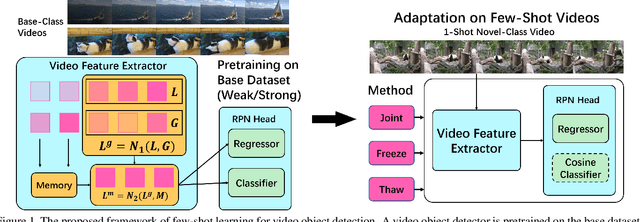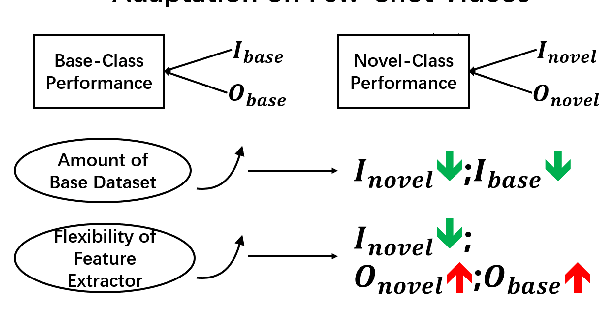Few-Shot Learning for Video Object Detection in a Transfer-Learning Scheme
Paper and Code
Mar 30, 2021



Different from static images, videos contain additional temporal and spatial information for better object detection. However, it is costly to obtain a large number of videos with bounding box annotations that are required for supervised deep learning. Although humans can easily learn to recognize new objects by watching only a few video clips, deep learning usually suffers from overfitting. This leads to an important question: how to effectively learn a video object detector from only a few labeled video clips? In this paper, we study the new problem of few-shot learning for video object detection. We first define the few-shot setting and create a new benchmark dataset for few-shot video object detection derived from the widely used ImageNet VID dataset. We employ a transfer-learning framework to effectively train the video object detector on a large number of base-class objects and a few video clips of novel-class objects. By analyzing the results of two methods under this framework (Joint and Freeze) on our designed weak and strong base datasets, we reveal insufficiency and overfitting problems. A simple but effective method, called Thaw, is naturally developed to trade off the two problems and validate our analysis. Extensive experiments on our proposed benchmark datasets with different scenarios demonstrate the effectiveness of our novel analysis in this new few-shot video object detection problem.
 Add to Chrome
Add to Chrome Add to Firefox
Add to Firefox Add to Edge
Add to Edge